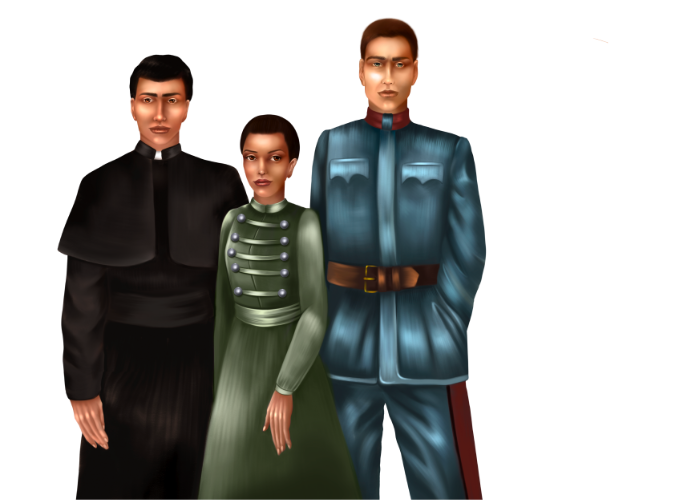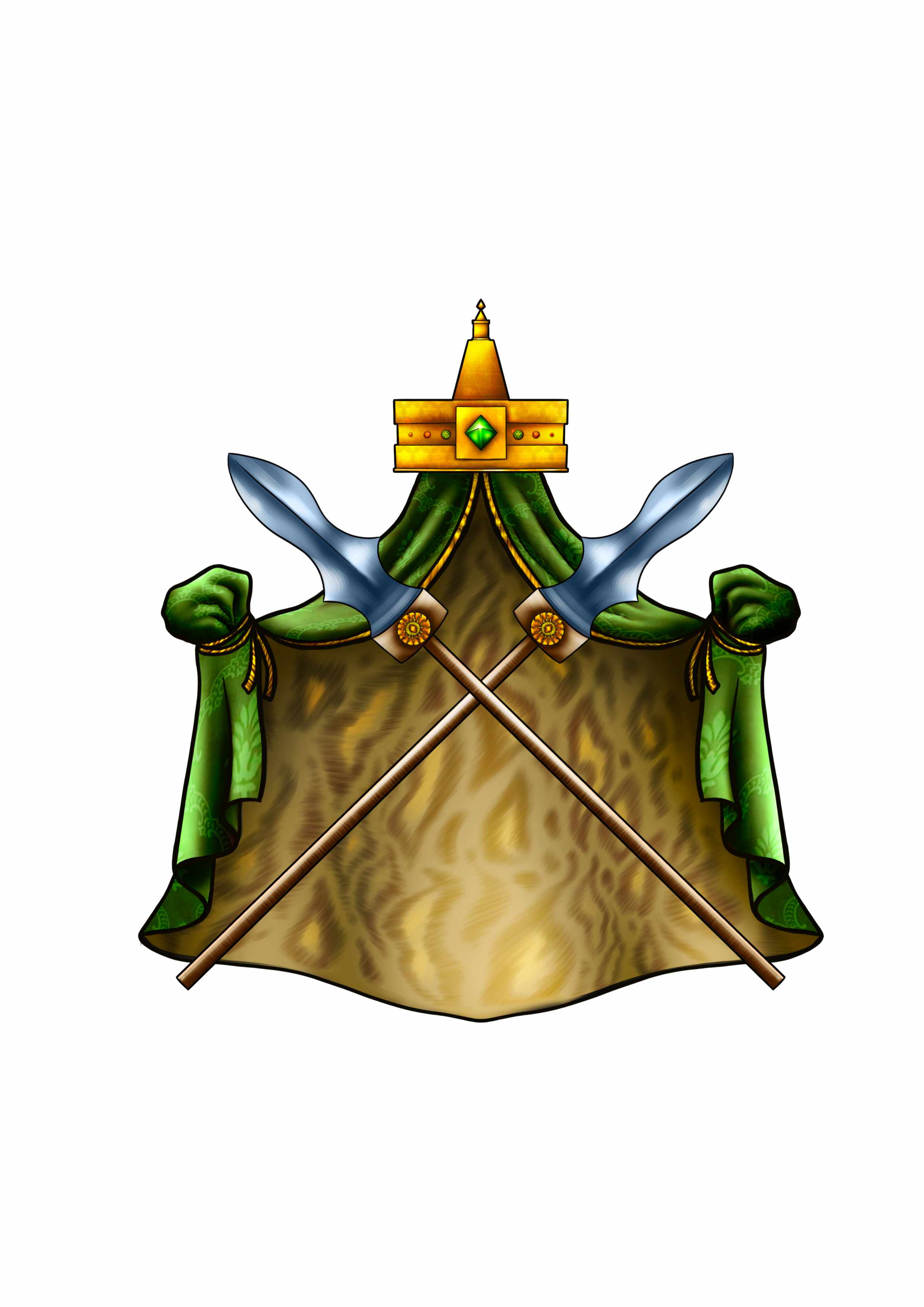Aleksandra was better prepared for the visit of the deputy head of the KGB today than she had been 4 days earlier: a plate of sandwiches and a bottle of vodka were prepared on the dining table, along with water and even a small box of seven chocolates.
After the usual procedure - the phone call, the opening of the wardrobe and the securing of her entrance door by a member of Schelepin's staff she did not know - her mentor entered the flat through the wardrobe. Aleksandra saluted and escorted Schelepin from the bedroom into the living room to the set table.
"You use your knowledge of me wisely, Aleksandra. Since the days of war, the smell of liver spread has been irresistible to me. After days of starvation, finally finding a tin of this delicacy somewhere has forever connected me to this smell and taste," Shelepin said before taking a bite from one of the sandwiches. Aleksandra took the opportunity to pour him water and vodka, but only water for herself.
"In the meantime, I have briefed the interpreter assigned to me on the assignment as far as I know him. He has travelled to Lemberg with Doctor Bodin, as per your instructions, and will accompany the Austrian group. Although he is very young, he seems well suited. Nevertheless, I would prefer to have more detailed information myself about the guests to be expected and the content of my mission."
Shelepin nodded at Aleksandra's question and took a folded paper from his jacket pocket, which he handed to her across the table. While he continued to eat, she skimmed the unfolded document and then smoothed out her skirt, as she always did when she needed some more time to think. Shelepin waited before she finished reading and said, "I am sure that Comrade Shakhlikov is useful for this assignment in many ways. We have checked him out several times. He is also in some ways an associate of ours, though he knows nothing of your position. In any case, it will be instructive for you to work with him. We will talk about this in more detail after the end of the visit. But now to the further orders. As you have read, the examination by Doctor Bodin and the interrogations in Lemberg went exactly as we expected."
Aleksandra summarised what she had read, "The Austrian officer and his adjutant are unobjectionable. Their stay in the Austrian Embassy compound provides sufficient surveillance of their activities. Lieutenant-Colonel Bruscheck not only cooperated reliably with our people during the war, but also after Austria's independence he always advocated equal diplomacy towards the East as well as the West. He may not be a socialist, but he is realistic enough to correctly assess the importance of the Soviet Union for Austria."
Schelepin took a sip of water before speaking: "Another officer would hardly have come into question for us either. The results from Lemberg and the observations of the trip have only confirmed our earlier findings. What do you say to the information about the priest?"
Aleksandra pondered for a moment before answering, "The report is clear in this case as well: he was able to provide information about his research assignment without error. With a man of his education, it does not seem surprising to me that he has immersed himself in the subject matter. I suspect, however, that I could very quickly convict him if I questioned him about architectural knowledge."
Schelepin shook his head, "His alibi must definitely hold up before the watchful eyes of those who will also be watching you during his stay. There are enough forces in our ranks who would curtly reject such contact. Not only the priest, but all the others involved would no longer be safe if these people found even the slightest reason to suspect more than historical research behind the visit."
Aleksandra reached for her water glass at first, but then put it down and asked directly, "Comrade General, I still don't understand why we should make contact with a representative of this ideology at all."
Shelepin pushed the water glass to her, from which she now took a large sip: "Aleksandra, we have celebrated great successes in many areas and will by no means let up in this new era in helping all peoples to achieve freedom and progress. But it is also necessary that we adapt the methods of supporting our comrades in the West to modern conditions. And the Church is an institution that has indirect political significance in many countries that have a great interest in our model of socialism: Latin America is a good example, the European colonies in Africa. Yes, even in Europe, indirect cooperation could open some doors for us. It is by no means important that we adopt positions of this institution in terms of content, such as the belief in a supreme being or the infatuation with ancient rituals, which serve more for obfuscation and emotional gratification than for clarity of science and progress. But there are certain areas in terms of improving the situation of workers, the struggle against nationalism and others where we could very well make an arrangement of cooperation. But for that it will be necessary to have a trustworthy informal contact. And you two, this priest and you as my best student, you two can become that contact."
Schelepin hesitated a little before continuing, "But it can also just remain a one-time contact if you feel it is not suitable. What you must not do, however, and, knowing you, will do, is make the conversation impossible from the outset. I have chosen you not only because I know your loyalty, but also because you can find a language that builds a bridge for him that is not militarily rough, not diplomatically incomprehensible, but scientifically clear and oriented towards goals. On that level you will be able to find each other."
Aleksandra glanced again at the paper in front of her, "His conversation with the military priest of Lviv was of the utmost brevity, his contacts with Lieutenant Colonel Bruscheck were limited to lunches and dinners together on the train and a longer conversation on the route between Venice and Vienna. In the opinion of our analysts, he harbours a certain shyness towards the military. But it is interesting to note that he had more frequent contact with the attached sergeant, several longer conversations and a joint visit to the opera in Vienna."
Schelepin smirked: "On the standing room only! You should like that, that he puts himself on a par with the proletariat."
"I doubt that the Austrian proletariat attends the opera more often than the Soviet proletariat, but I interpreted the observation that way too. It will definitely be exciting to meet this person."
The rest of the conversation was all about the guest's accommodation at the Moskva Hotel, the types of tailing and possible leisure activities Aleksandra should prepare for the evenings and weekends. After Schelepin had eaten one more of the chocolates with relish, he got up and left Aleksandra's flat through the wardrobe.
Returning to the table, she now also took a chocolate and again let her gaze roam over the summary of the observations so far. She had never spoken to a priest before. Would he try to proselytise her? What arguments would he put forward in favour of a religious way of life? And if he was a historian rather than a priest, how would he interpret history?
Aleksandra took Shelepin's untouched vodka glass and poured the liquor back into the bottle. She didn't care for alcohol and stowed the bottle back in its place. Suddenly she paused, went to the sheet of paper lying on the table and skimmed it again: there, she had not been mistaken: both the waiter from the Austrian train and the orderly from the officers' mess in Lemberg had stated as the priest's conspicuousness that he had only drunk water.







